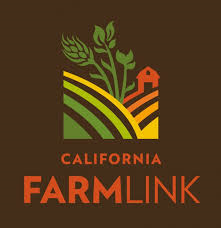Peter Ruddock
Slow MoneyPeter is Coordinator of the Slow Money - LION South Bay group. He is advocate for a more resilient food system and a strong local economy.
Slow Money provides a meaningful alternative to our current financial system that has run amok – trillions of dollars a day flowing through capital markets in securities that no one fully understands, contributing to systemic problems of our time.
What does Slow Money mean?
Investing in real places, in people and enterprises close to home. Investing patiently, over time, with a goal of building healthy enterprises, communities and ecosystems, not just extracting financial wealth. Measuring Return on Investment by the tangible world we create around us and the health of our soil, not just the profit we make.
Sarah Lopez
Fiesta Farm
Aurelio and Sarah Lopez began experimenting with
pasture-raised chickens in 2009 after reading one of Joel Salatin’s books.
To begin with they lived in a barn above a single acre of rented land,
moonlighting as chicken farmers while both working full-time
day jobs. Fast-forward a few years and 2013 finds Fiesta Farm
raising chickens for both meat and eggs, as well as pigs, rabbits, and goats on
almost 30 acres of mixed grass pasture and oak forest. They are proud of
our “triple bottom line” business which feeds hundreds of local families with
nourishing, nutrient-dense foods while maintaining a balance between People, Profit, and Planet.
Sarah (Greene) Lopez grew up on the Chesapeake Bay in
Maryland. Her first part-time job was taking care of the birds and snakes
behind the scenes at a pet store… which makes her parents wonder… Sarah studied
natural resource management at the University of Michigan and then returned to
the Chesapeake to earn a master’s degree in marine science. Like many
east coasties, she ventured west to California in search of gold, and found
Aurelio. A former vegetarian, Sarah became interested in raising her own
meat, and stumbled upon the growing demand for local and humanely raised meat
and dairy products, which led to the creation of the former Surfside Chickens
(which became Fiesta Farm). Sarah maintains an off-farm job monitoring
water quality on behalf of the irrigated agriculture industry here on the
Central Coast. She also manages the Fiesta Farm sales, marketing, and
“office.”
Aurelio Lopez was born and spent his early years in Tlaxiaco, Oaxaca, Mexico. A Mixteco indian, he speaks fluent Mixteco, Spanish, and English. With 10 children in the family (Aurelio is the second youngest), Aurelio’s parents grow corn, beans, and coffee… Aurelio has been a farmer all his life! More recently, Aurelio spent just over a decade working for an organic vegetable farm in Watsonville. Though chickens and other livestock are new “crops” for him, Aurelio’s experience with organic farming and the type of production schedule needed to support CSA and farmer’s market sales are what makes Fiesta Farm “go.” For example, whenever things get hard enough to make Sarah cry, Aurelio responds with a reassuring, “Like I always tell you, this is farming.”
Brett
Melone
Loan OfficerCalifornia FarmLink
Brett Melone has served
as Loan Officer at California FarmLink since July 2013. Prior to that time
Brett was a member of the California Farmlink Board of Directors and Loan
Committee. Brett has more than 15 years of experience supporting the business
success of farmers and leading non profit organizations that serve farmers. He
is an adjunct instructor of sustainable agriculture at the Monterey Institute
of International Studies. Brett has extensive non-profit management experience
and served as Executive Director of Friends of MarViva Foundation and as the
Executive Director of ALBA, Agriculture & Land-Based Training Association
in Salinas, California. Brett has a BA in International Relations, Business and
Spanish from the University of San Diego, and an MA in International
Environmental Policy from the Monterey Institute of International Studies
The
mission of California FarmLink is to link independent farmers and ranchers to
the land and financing they need for a sustainable future. Established in 1999, California FarmLink has developed a
statewide program of economic development support for beginning,
limited-resource, immigrant and other underserved farmers across the
state.








.jpg)









.jpg)


.jpg)












